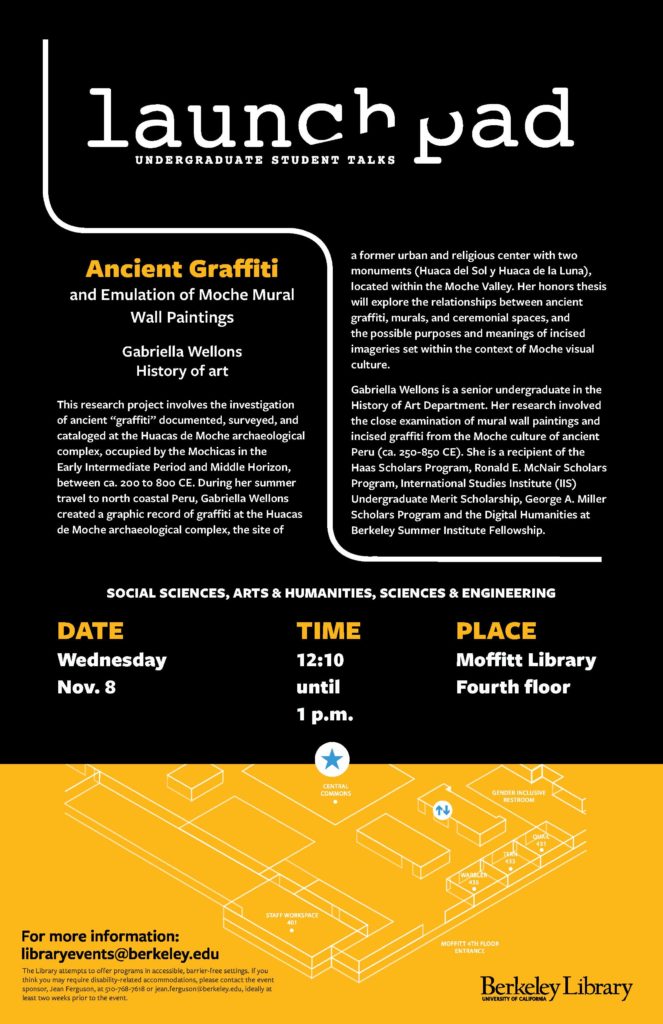Tag: students
Undergraduate Library fellows offering research assistance
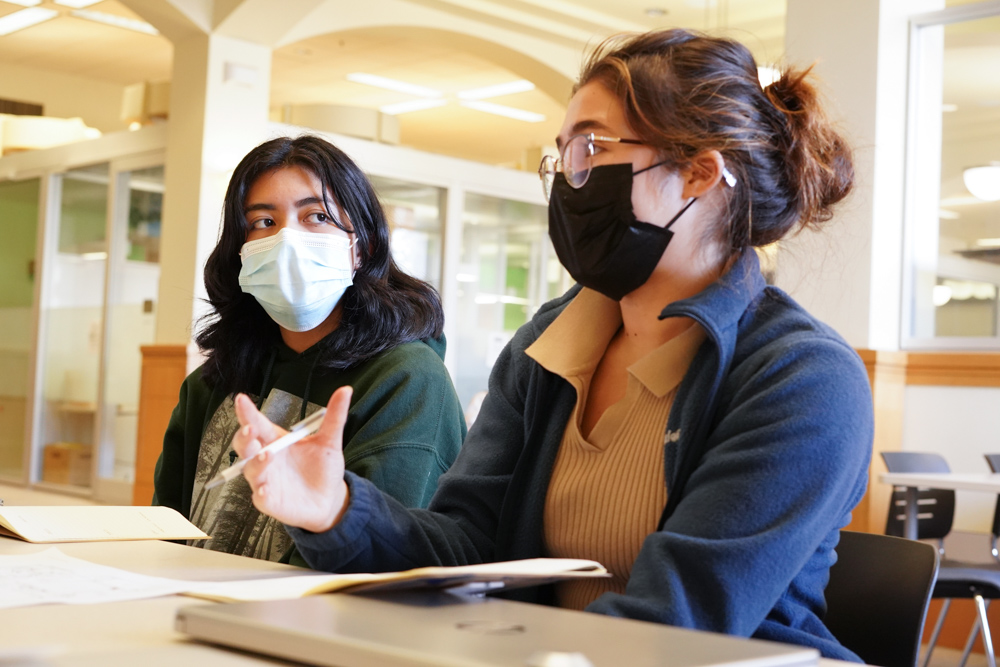
Students: Need help with your research?
Starting this month, undergraduate Library fellows are offering in-person peer library research assistance. Fellows are available 1-3 p.m. Mondays and Wednesdays through Nov. 30.
Presenting the Oral History Center Class of 2020
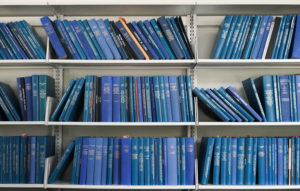
At the conclusion of every academic year, the Oral History Center staff takes a moment to pause, reflect on the interviews completed over the previous year, and offer gratitude to those individuals who volunteered to be interviewed. The names below constitute the Oral History Class of 2020. Please join us in offering heartfelt thanks and congratulations for their contributions!
We would also like to take this time to thank our student employees, undergraduate research apprentices, and library interns. It was a unique semester, topping off a busy and productive year, and they continued to come through for us, as they always do. We rely on this team for work that is critical to our operations: research, interview support, and curriculum development; video editing; writing and editing of abstracts, front matter, and transcripts; and more. They’ve even produced articles and oral history performances to share our work with wider audiences. We couldn’t do it without them!
Find these and all our oral histories from the search feature on our home page. You can search by name, key word, and several other criteria.
The Oral History Center Class of 2020
Individual Interviews
Robert L. Allen
Bruce Ames
Samuel Barondes
Alexis T. Bell
Robert Birgeneau
John Briscoe
Willie Brown
George Miller
Michael R. Peevey
Nancy Donnelly Praetzel
Robert Praetzel
John Prausnitz
Zack Wasserman
Bay Area Women in Politics
Mary Hughes
California State Archives
Jerry Brown
Chicano/a Studies
Vicki L. Ruiz
East Bay Regional Park District
Glenn Adams
Ron Batteate
Kathy Gleason
Raili Glenn
Brian Holt
Diane Lando
Mary Lentzner
John Lytle
Beverly Marshall
Rev. Diana McDaniel
Roy Peach
Janet Wright
Economist Life Stories
George Tolley
Getty Trust
Peter Bradley
Kathleen Dardes
David Driskell
Melvin Edwards
Charles Gaines
Kenneth Hamma
Thomas Kren
David Lamelas
Mark Leonard
Richard Mayhew
Howardena Pindell
Michael R. Schilling
Joyce Hill Stoner
Yvonne Szafran
Global Mining
Bob Kendrick
Napa Valley Vintners
David Duncan
Paula Kornell
David Pearson
Linda Reiff
Emma Swain
SF Opera
Kip Cranna
David Gockley
Sierra Club
Lawrence Downing
Aaron Mair
Anthony Ruckel
SLATE
Susan Griffin
Julianne Morris
Yale Agrarian Studies
Marvel “Kay” Mansfield
Alan Mikail
Paul Sabin
Ian Shapiro
Helen F. Siu
Elisabeth Jean Wood
Thank You
Student Employees
Max Afifi
Gurshaant Bassi
Yarelly Bonilla-Leon
Jordan Harris
Abigail Jaquez
Nidah Khalid
Ashley Sangyou Kim
Devin Lizardi
JD Mireles
Tasnima Naoshin
Lydia Qu
Lauren Sheehan-Clark
Librarian Interns
Jennifer Burkhard
Charissa Fitzpatrick
Undergraduate Research Apprentices
Corina (Mei) Chen
Nika Esmailizadeh
Evgenia Galstyan
Emily Keats
Esther Khan
Emily Lempko
Atmika Pai
Samantha Ready
Kendall Stevens
Let There Be Light podcast explores identity at UC Berkeley — through housing, microchips, and the Berkeley food scene
Announcing Season 4 of the Berkeley Remix podcast!
This season of the Berkeley Remix we’re bringing to life stories about our home — UC Berkeley — from our collection of thousands of oral histories. Please join us for our fourth season, Let There Be Light: 150 Years at UC Berkeley, inspired by the University’s motto, Fiat Lux. Our episodes this season explore issues of identity — where we’ve been, who we are now, the powerful impact Berkeley’s identity as a public institution has had on student and academic life, and the intertwined history of campus and community.
The three-episode season explores how housing has been on the front lines of the battle for student welfare throughout the University’s history; how UC Berkeley created a culture of innovation that made game-changing technologies possible; and how political activism on campus was a motivator for the farm-to-table food scene in the city of Berkeley. All episodes include audio from interviews from the Oral History Center of The Bancroft Library.
Episode 1. Sleeping with the Light On: Housing and Community at Berkeley
Written and produced by historian Amanda Tewes, UC Berkeley Oral History Center
“From early housing cooperatives during the Great Depression, to fights for racial and gender parity on campus, housing has been on the front lines of the battle for student welfare throughout the University’s history.”
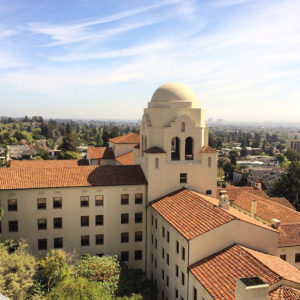
We’ve come to think of communal living as a tradition for students, a rite of passage and a valuable lesson in community building. But for much of its history, UC Berkeley didn’t even have residence halls! In this episode, we explore what home and community has meant to students at Cal, and how accessible spaces have supported social justice movements on and beyond campus.
This episode includes audio from the Oral History Center of The Bancroft Library, including Rev. Allen C. Blaisdell, Jackie Goldberg, Frank Inami, Marguerite Kulp Johnston, Edward V. Roberts, and Dorothy Walker. Voiceover of Ruth Norton Donnelly’s interview by Shanna Farrell. Audio from the “Which Campus?” video courtesy of The Bancroft Library. (Written version of Sleeping with the Light On.)
Episode 2. Berkeley Lightning: A Public University’s Role in the Rise of Silicon Valley
Written and produced by historian Paul Burnett, UC Berkeley Oral History Center
“We’re used to hearing about how game-changing technology makes whole new ways of living and working possible. But what makes the game-changing technologies possible? UC Berkeley — a public, state university — established institutions and teams that would make the culture of innovation possible.”

“Berkeley Lightning” is about the contributions of UC Berkeley Engineering to the rise of the semiconductor industry in what became known as Silicon Valley in the 1960s and 70s. In contrast to the influential entrepreneurial spirit of a private university like Stanford, Berkeley’s status as a public institution had a different impact on Silicon Valley. We focus on the development of the first widely used design program for prototyping microchips. Originally designed by and for students, the software spread like lightning in part because Berkeley, as a public institution, made it available free of charge. The world has not been the same since.
This episode includes audio from the Oral History Center of The Bancroft Library, including Paul R. Gray, Professor of Engineering Emeritus, Department of Electrical Engineering and Computer Science and Dr. Laurence Nagel, CEO Omega Enterprises, PhD from UC Berkeley EECS, and former senior manager at Bell Laboratories (oral history forthcoming). (Written version of Berkeley Lightning.)
Episode 3. Berkeley After Dark
Written and produced by interviewer Shanna Farrell, UC Berkeley Oral History Center
“What Alice Waters and the Chez Panisse team did was probably the most radical gesture in restaurants and cooking in America in the last century. It’s important that it happened in Berkeley.” — Chef Christopher Lee
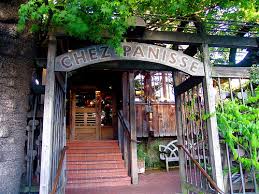
Berkeley After Dark is about the connection between the history of farm-to-table eating and the campus community. UC Berkeley alum Alice Waters helped pioneer the concept of eating local, seasonal, and organic food at her restaurant, Chez Panisse, located just a few blocks from campus on Shattuck Avenue. This grew out of her combined love of feeding people and political activism, and evolved into a culinary revolution. And it couldn’t have happened without UC Berkeley. The intertwined history between campus and the community gave Chez Panisse an audience, and a workforce, creating a symbiotic relationship.
This episode includes audio from the Oral History Center of The Bancroft Library, including Christopher Lee, Narsai David, and Dylan O’Brien. Voiceover of Marion Cunningham’s interview by Amanda Tewes and Paul Bertolli’s interview by John Fragola. Supplemental interviews with Chris Ying. (Written version of Berkeley After Dark.)
Over the decades, the Oral History Center has conducted 4,000 interviews on almost every topic imaginable. As part of UC Berkeley’s commitment to open access, the transcripts are available to researchers and the public at no cost, and almost all of the transcripts are available online. Search our vast collection.
From the Oral History Center Director – OHC and Education
For an office that does not offer catalog-listed courses, the Oral History Center is still deeply invested in — and engaged with — the teaching mission of the university.
For over 15 years, our signature educational program has been our annual Advanced Oral History Summer Institute. Started by OHC interviewer emeritus Lisa Rubens in 2002 and now headed up by staff historian Shanna Farrell, this week-long seminar attracts about 40 scholars every year. Past attendees have come from most states in the union and internationally too — from Ireland and South Korea, Argentina and Japan, Australia and Finland. The Summer Institute, applications for which are now being accepted, follows the life cycle of the interview, with individual days devoted to topics such as “Project Planning” and “Analysis and Interpretation.”
In 2015 we launched the Introduction to Oral History Workshop, which was created with the novice oral historian in mind, or individuals who simply wanted to learn a bit more about the methodology but didn’t necessarily have a big project to undertake. Since then, a diverse group of undergraduate students, attorneys, authors, psychologists, genealogists, park rangers, and more have attended the annual workshop. This year’s workshop will be held on Saturday February 3rd and registration is now open.
In addition to these formal, regularly scheduled events, OHC historians and staff often speak to community organizations, local historical societies, student groups, and undergraduate and graduate research seminars. If you’d like to learn more about what we do at the Center and about oral history in general, please drop us a note!

In recent years we have had the opportunity to work closely with a small group of Berkeley undergrads: our student employees. Although the Center has employed students for many decades, only in the past few years have they come to play such an integral role in and make such important contributions to our core activities. Students assist with the production of transcripts, including entering narrator corrections and writing tables of contents; they work alongside David Dunham, our lead technologist, in creating metadata for interviews and editing oral history audio and video; and they partner with interviewers to conduct background research into our narrators and the topics we interview them about. With these contributions, students have helped the Center in very real, measurable ways, most importantly by enabling an increase in productivity: the past few years have been some of the most productive in terms of hours of interviews conducted in the Center’s history. We also like to think that by providing students with intellectually challenging, real-world assignments, we are contributing to their overall educational experience too.
As 2017 draws to a close, I join my Oral History Center colleagues Paul Burnett, David Dunham, Shanna Farrell, and Todd Holmes in thanking our amazing student employees: Aamna Haq, Carla Palassian, Hailie O’Bryan, Maggie Deng (who wrote her first contribution to our newsletter this issue), Nidah Khalid, Pilar Montenegro, Vincent Tran, and Marisa Uribe!
Martin Meeker, Charles B. Faulhaber Director of the Oral History Center
Undergraduate Research Talk by Gabriella Wellons
Are you an undergraduate student who is curious about the research process? Would you like to hear about the experience of one of your peers? Join us Wednesday, November 8th for a talk by Gabriella Wellons, undergraduate in Art History.
Ancient Graffiti and Emulation of Moche Mural Wall Paintings
Wednesday, November 8th, 12:10-1:00pm
Moffitt Library, Fourth Floor
